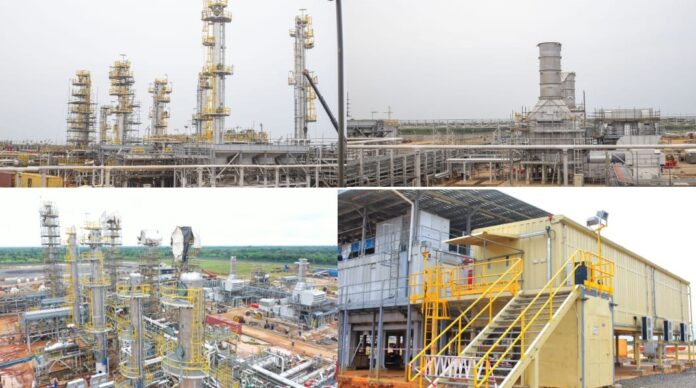President Bola Tinubu is poised to inaugurate three pivotal gas infrastructure projects, signaling a monumental leap towards harnessing gas resources to propel economic growth.
According to a statement from Chief Ajuri Ngelale, Special Adviser to the President (Media & Publicity), the commissioning will mark a significant stride in Nigeria’s commitment to utilize gas assets effectively while eradicating gas flaring.
Accelerated under the current administration’s tenure, these projects epitomize the government’s overarching goal of enhancing domestic gas supply as a catalyst for economic advancement.
The Projects in Focus:
(1) AHL Gas Processing Plant 2 (GPP – 2) – 200mmscf/d
A sequel to the Kwale Gas Processing Plant (GPP – 1), the GPP – 2 expansion is designed to augment the existing capacity by processing 200MMscf/d of rich gas. Operating in tandem with the OB3 Gas Pipeline, this facility will bolster Nigeria’s industrialization drive while curbing reliance on LPG imports. Developed by AHL Limited, a joint venture between NNPC Limited and SEEPCO, the plant is poised to deliver significant socio-economic benefits.
(2) ANOH Gas Processing Plant (AGPC) – 300MMscf/d
Located in Imo State, the ANOH Gas Processing Plant is set to revolutionize Nigeria’s gas landscape. With a processing capacity of 300MMscf/d, it will harness non-associated gas from the Assa North-Ohaji South field, yielding dry gas, condensate, and LPG. This strategic initiative, a joint venture between NNPC Limited and Seplat Energy Plc, promises to amplify domestic gas supply, thereby spurring power generation and industrial growth.
(3) ANOH-OB3 CTMS Gas Pipeline Project
Engineering a 36”x23.3km transmission pipeline, the ANOH-OB3 CTMS Gas Pipeline Project represents a critical link in Nigeria’s gas infrastructure. Tasked with evacuating dry gas from the ANOH primary treatment facility to the OB3 Custody Transfer Metering Station, this venture will facilitate the seamless integration of gas resources into the national grid. Envisioned as a collaborative effort between AGPC and SPDC JV, this pipeline underscores Nigeria’s commitment to sustainable energy solutions.
Economic Implications:
Upon completion, these initiatives are poised to bolster Nigeria’s gas supply by an estimated 500mmscf/d, heralding a new era of economic prosperity. By fostering an environment conducive to investment and driving inclusive growth, the projects epitomize the government’s unwavering dedication to national development.
Meanwhile, President Tinubu’s unwavering commitment to leveraging gas resources is not only transforming Nigeria’s energy landscape but also paving the way for a brighter, more sustainable future.
NTA




